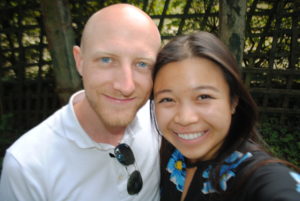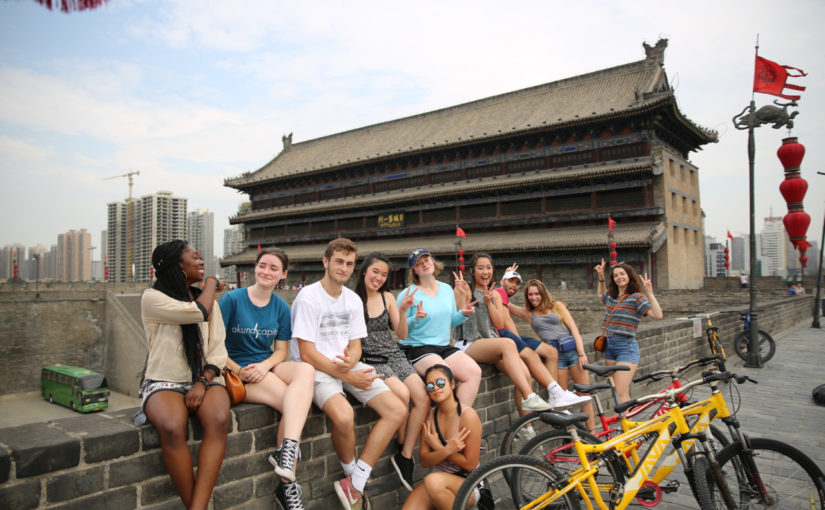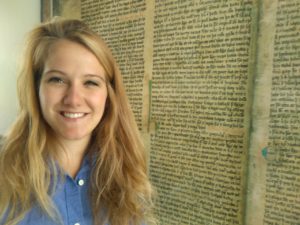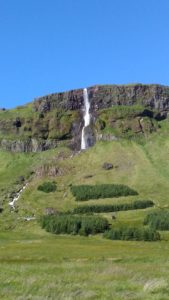While writing my post-program reflection, I realize that I had accidentally forgotten to publish a post from July 10, initially intended to be my 2nd post. So, I’m posting it here in its original form, as my final “while abroad” post.
4th of July, Russian style
I may be in Russia, but that didn’t mean that the 4th of July wasn’t celebrated! My program consists of around 60 American students, so we wanted to find a way to celebrate that was still cognizant of our environment and location. The holiday fell on a Tuesday, so there was not much of a chance for organized activities. Around ten students, including myself and two Russians, went to an American-style karaoke bar in the city. The bar was about an even split between Americans and Russians, and all the Russians seemed very excited to meet Americans and take part in the foreign celebration.
The remainder of the week was fairly normal, as I have now settled into life in Saint Petersburg. My classes continued, and I am adjusting to the very forward (verging at times on condescending) style of my professor. He is a polyglot: he is a native speaker of Russian and Dutch, learned German and English at a young age, and is also conversational in Spanish and French. As a result, it seems, he has little tolerance for our struggles with what he views as easy parts of the language.
On Sunday the 9th, we celebrated the 4th of July more officially. Our program administrators organized a picnic for all of us students, as well as the program’s Russian volunteers and any local friends we brought along. We went to a park and ate, threw a frisbee, and enjoyed ourselves. There’s a more remarkable part to this story, however: we stumbled into the filming of a movie! We saw dozens of actors, mostly extras, in aristocratic dress gathering and film crews preparing the set. One of us asked one of the actors what the movie was, and apparently it was a movie about Tsar Nicholas II and his family, in honor of the 100-year anniversary of the Russian Revolution. 
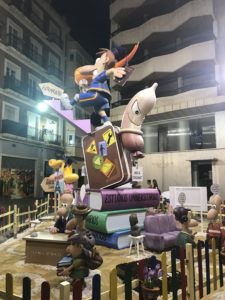 ant art displays that cost 100,000 euros to make each. Every neighborhood creates and then displays their own hoguera, which gives the character to the neighborhood. In total, there are over 30 hogueras on display in the city. Every day, firework-like bangs called las mascletas go off in the center of Alicante during the day, which leads to a full day of partying and drinking through out the streets. Then, on the weekend, people head to the beach to make bonfires and jump over them. One of my friends actually got burnt while trying to jump over the fire.
ant art displays that cost 100,000 euros to make each. Every neighborhood creates and then displays their own hoguera, which gives the character to the neighborhood. In total, there are over 30 hogueras on display in the city. Every day, firework-like bangs called las mascletas go off in the center of Alicante during the day, which leads to a full day of partying and drinking through out the streets. Then, on the weekend, people head to the beach to make bonfires and jump over them. One of my friends actually got burnt while trying to jump over the fire.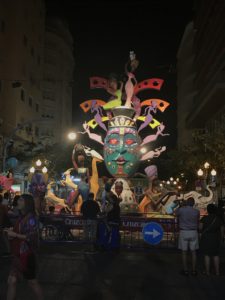
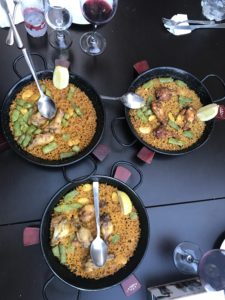 ion, where I learned how to make ensalada rusa and tortilla, which is the Spanish omelet. This was very exciting because I learned all about the ingredients and preparation, as well as the rationale for the importance of each of the dishes. When it gets very hot in the summer, cooler dishes are needed that require minimal use of the oven and are lighter to eat. These tapas that we created served exactly that purpose, the ensalada rusa required no cooking whatever, and the tortilla did not take long to create.
ion, where I learned how to make ensalada rusa and tortilla, which is the Spanish omelet. This was very exciting because I learned all about the ingredients and preparation, as well as the rationale for the importance of each of the dishes. When it gets very hot in the summer, cooler dishes are needed that require minimal use of the oven and are lighter to eat. These tapas that we created served exactly that purpose, the ensalada rusa required no cooking whatever, and the tortilla did not take long to create.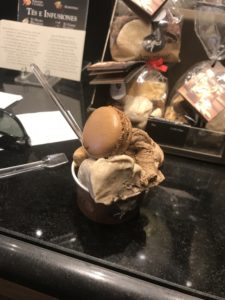
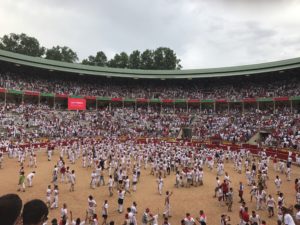 For class, we had to go interview people on social questions to see the contrasting opinions between Spain and the United States. One of the most important cultural issues in Spain is the role of los toros, or the bulls. It is a very controversial issue in Spain because there are strong cultural and historical ties to the killing of bulls in bullfights, as well as the running of the bulls, but many people are against these practices because of animal rights practices. In Catalonia, they have outlawed bullfights, but all other regions, including Alicante, have legal bullfights at least once a year. I witnessed both a bullfight and the running of the bulls, in order to gain a sense of what actually happened at these events before judging them.
For class, we had to go interview people on social questions to see the contrasting opinions between Spain and the United States. One of the most important cultural issues in Spain is the role of los toros, or the bulls. It is a very controversial issue in Spain because there are strong cultural and historical ties to the killing of bulls in bullfights, as well as the running of the bulls, but many people are against these practices because of animal rights practices. In Catalonia, they have outlawed bullfights, but all other regions, including Alicante, have legal bullfights at least once a year. I witnessed both a bullfight and the running of the bulls, in order to gain a sense of what actually happened at these events before judging them.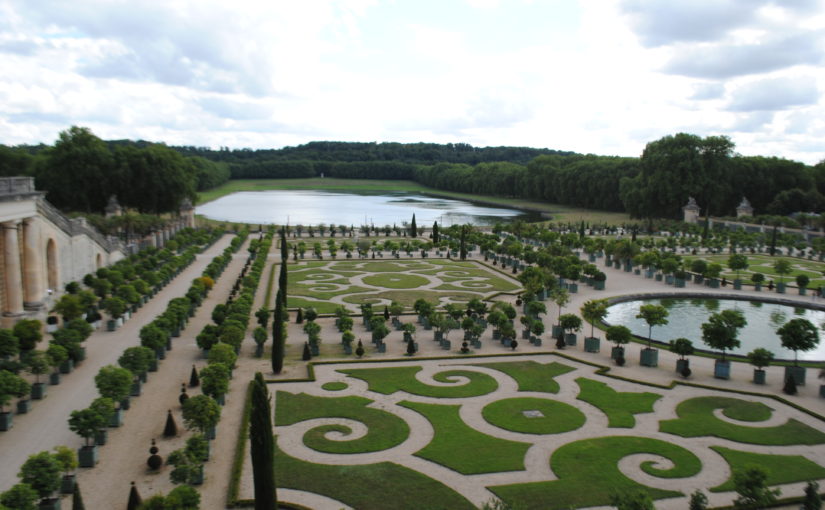
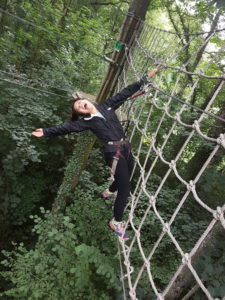
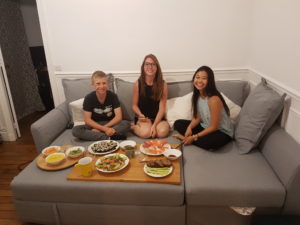 went to a “Franglish” MeetUp group in the heart of Paris. I met wonderful people who were curious about American culture and eager to help me with French. It was there that I made my closest friends–friends who showed me the parks, theatre, swimming pools, rock climbing gyms, and outdoor markets. I have fallen in love with the language, the city, and the people, and have every intention on returning.
went to a “Franglish” MeetUp group in the heart of Paris. I met wonderful people who were curious about American culture and eager to help me with French. It was there that I made my closest friends–friends who showed me the parks, theatre, swimming pools, rock climbing gyms, and outdoor markets. I have fallen in love with the language, the city, and the people, and have every intention on returning.